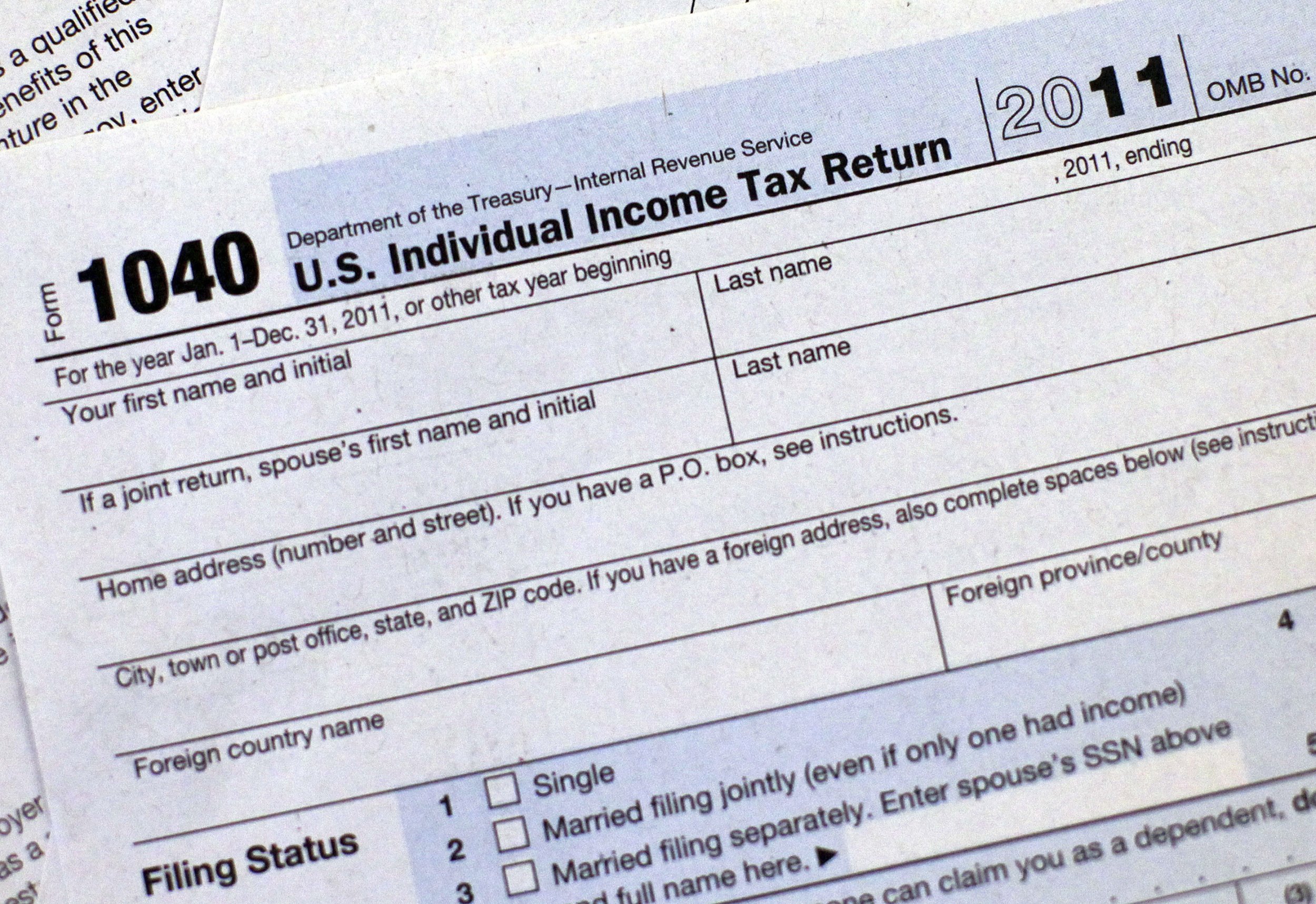
This article originally appeared on The Motley Fool.
The vast majority of Americans make a major tax mistake: overpaying.
That's right. Most of us give the IRS way more money up front than we need to year after year. It's estimated that close to 80 percent of taxpayers wind up with a refund, and while the idea of getting one might seem like a good thing, it's actually a move that could cost you big time.
You'd think more of us would take steps to guard our hard-earned money from the IRS, but clearly, that's not the case. The average American receives a $3,120 refund—not a small number. Worse yet, those who earn the least are the most likely to overpay their taxes throughout the year. According to IRS data, 84 percent of workers earning less than $50,000 a year got a refund in 2012, compared to just 34 percent of those earning over $200,000. But waiting on a refund can be especially detrimental when you're living paycheck to paycheck.
So why do so many of us overpay our taxes? A lot of it boils down to fear. We're all so worried about owing money each April that we err on the side of caution in advance.
Of course, our collective savings habits don't exactly put us in the best position to deal with an unexpected IRS bill. Roughly 69 percent of Americans have less than $1,000 in savings, while 34 percent have no savings at all. It therefore stands to reason that overpaying your taxes might serve as an insurance policy of sorts against owing money and not being able to come up with the cash.
Another reason many of us overpay is that we don't know how many allowances to claim on our W-4s. Every allowance you claim on that form will reduce the tax amount withheld from each paycheck. It's important to get that number right, because if you claim too many allowances, you may end up owing the IRS money. But if you don't claim enough allowances, you'll wind up paying more taxes than necessary during the year. You can use this helpful withholding calculator to see how many allowances you should be claiming and, if needed, adjust your W-4 as soon as possible.
The thing to realize about overpaying your taxes is that you're loaning the government money for free. But worse than that, you're compromising your own financial security in the process. We just learned that most of us don't have $1,000 in the bank. If you encounter an emergency you can't pay for because you let the IRS keep your money instead, you could easily end up in debt. Even if you apply your tax refund to that debt later on, you'll have racked up interest charges by then that will end up costing you extra money.
Furthermore, when you hold off on getting the money that's yours, you lose out on the ability to invest that cash or earn interest on it throughout the year. And while today's rates are nothing to write home about, you might as well collect those few dollars in interest instead of letting the government use your money as it sees fit.
A better solution
So let's get back to the fear factor, which is what motivates so many of us to err on the side of overpaying. If you adjust your withholdings, take the extra money from each paycheck, and stick it in a dedicated savings account, you'll get to earn interest on that cash instead of the IRS. Then, if it turns out you do owe some money when you file your return, you can dip into that account, pay the IRS its share, and pocket the interest.
Now some people worry that if they don't pay enough taxes throughout the year, they'll wind up with a penalty on top of what they owe. But often, this doesn't happen. Generally speaking, you can avoid a penalty for underpayment if:
- The total amount you owe is less than $1,000, or;
- You paid at least 90% of the tax you owe for the year, or;
- You paid 100% of the tax amount from last year's return.
So let's say you pay $30,000 in taxes for the year but end up owing another $1,200 when you file your return. Since you're only looking at a 4% underpayment, you shouldn't be charged an additional penalty because you've exceeded that 90% threshold. Furthermore, if you only paid $30,000 in taxes the previous year, you should also be in the clear.
Remember, a tax refund isn't free money; it's your money that you failed to collect all along. You're far better off claiming that cash as you earn it and using it responsibly than loaning it to the government for absolutely nothing in return.
A $6,269 opportunity lurking in your tax return?
Taxes can be confusing and downright miserable. But a handful of "tax tricks" could help millions of Americans save thousands of dollars. That's free money you could be leaving on the table. For example: the IRS believes that a full 20% of eligible Americans miss out on a tax break worth up to $6,269... each year! Simply click here to discover how to learn more about these strategies.
Uncommon Knowledge
Newsweek is committed to challenging conventional wisdom and finding connections in the search for common ground.
Newsweek is committed to challenging conventional wisdom and finding connections in the search for common ground.
About the writer
To read how Newsweek uses AI as a newsroom tool, Click here.








